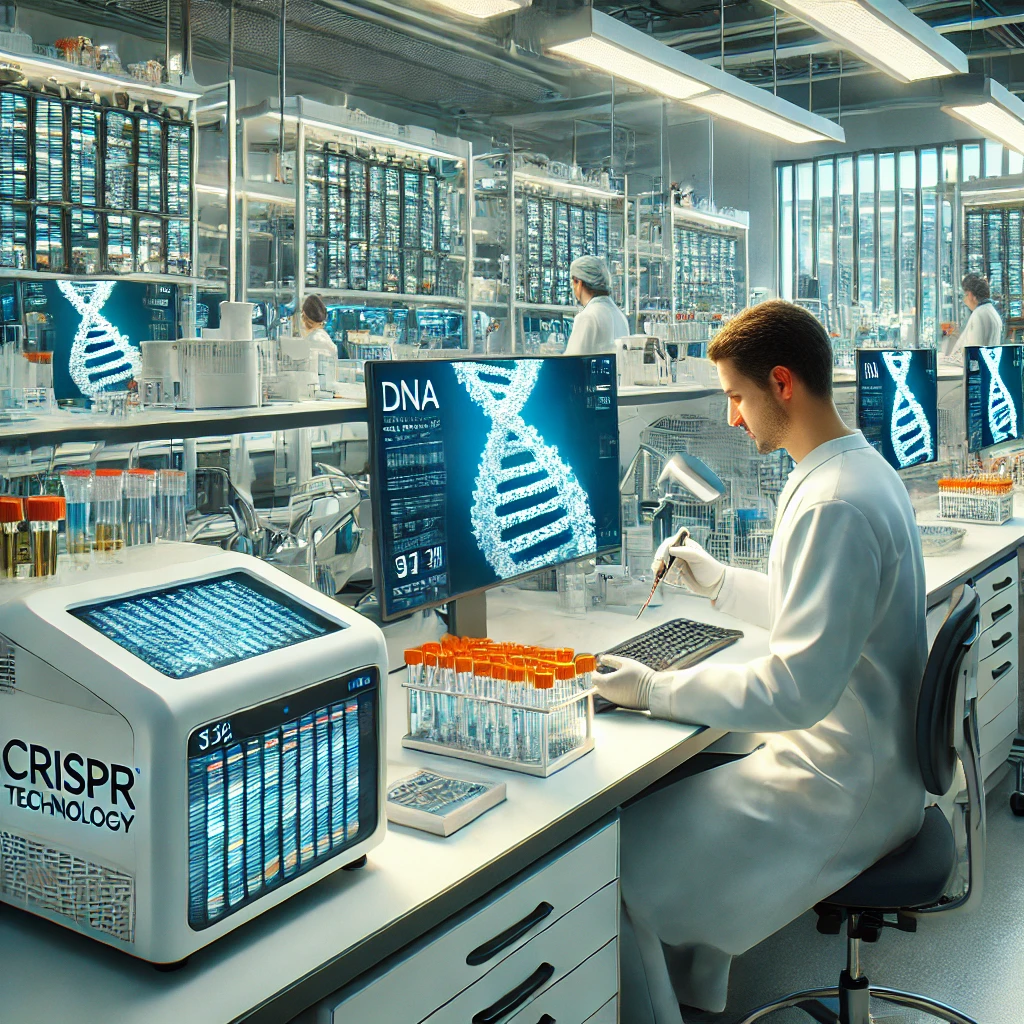CRISPR (Clustered Regularly Interspaced Short Palindromic Repeats) technology has revolutionized the field of genetic engineering, offering unprecedented precision in editing DNA. This breakthrough has significant implications for modern medicine, from treating genetic disorders to potentially eradicating certain diseases. However, with great power comes great responsibility, and the ethical considerations surrounding CRISPR are equally profound.
What is CRISPR?
CRISPR is a tool derived from a natural defense mechanism found in bacteria. It allows scientists to make precise, targeted changes to the DNA in living cells. By using an enzyme called Cas9, which acts like molecular scissors, researchers can cut DNA at specific locations, enabling the addition, removal, or alteration of genetic material.
Medical Potential
- Treating Genetic Disorders: One of the most promising applications of CRISPR is in the treatment of genetic disorders. Diseases like cystic fibrosis, sickle cell anemia, and muscular dystrophy, which are caused by mutations in single genes, could potentially be corrected by editing the faulty genes.
- Cancer Research: CRISPR is also being explored in cancer research. By modifying immune cells to better target and destroy cancer cells, this technology could lead to more effective treatments.
- Infectious Diseases: Another exciting application is in combating infectious diseases. For instance, CRISPR has been used to target and deactivate the genes of viruses like HIV, providing a new avenue for antiviral therapies.
Ethical Considerations
While the potential benefits of CRISPR are immense, there are significant ethical issues to consider:
- Gene Editing in Embryos: One of the most controversial aspects of CRISPR is its use in human embryos. Editing genes at this early stage can prevent inherited diseases, but it also raises concerns about “designer babies” and the long-term effects on the human gene pool.
- Off-Target Effects: Despite its precision, CRISPR is not perfect. There is a risk of off-target effects, where unintended parts of the genome are altered. This could lead to unforeseen consequences, including new mutations or diseases.
- Access and Equity: The high cost of CRISPR-based treatments may limit access to this technology, potentially widening the gap between different socio-economic groups. Ensuring that these advancements are accessible to all is a major ethical concern.
- Regulation and Oversight: As with any powerful technology, there is a need for robust regulation and oversight to prevent misuse. Establishing international guidelines and ethical standards is crucial to ensure CRISPR is used responsibly.
Conclusion
CRISPR technology holds incredible promise for the future of medicine, offering potential cures for genetic disorders, advancements in cancer treatment, and new approaches to combating infectious diseases. However, it is essential to navigate the ethical challenges it presents carefully. By balancing innovation with responsibility, we can harness the power of CRISPR to improve human health while safeguarding ethical standards.




